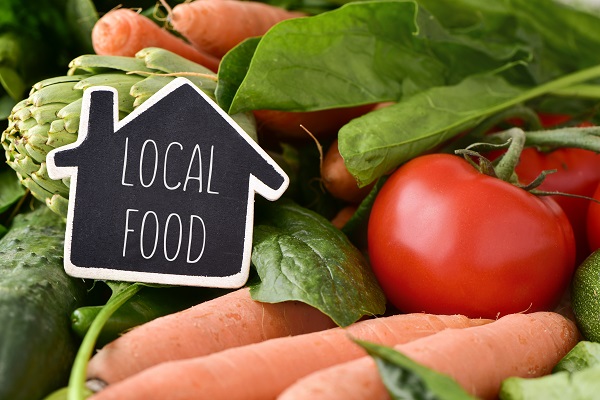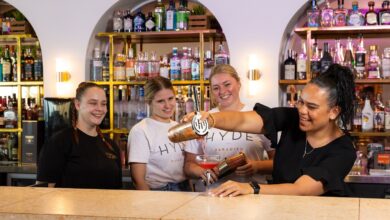
Op-Ed: Boost for hotel profits and Planet Earth
How to save the world and boost hotel profits while doing it.
That’s the mission of renowned social scientist Sara Dolnicar, a University of Queensland professor, whose ground-breaking research provides “win-win solutions” for both the environment and the tourism industry.
With accommodation providers battered by the Coronavirus pandemic, Professor Dolnicar says now is the perfect time to implement strategies that can not only futureproof the environmental and economic sustainability of the industry but make hotel stays even more enjoyable for guests.

Her UQ research project has been running for the last four years and she has just received funding from the Australian Research Council to extend it for another five.
She estimates that in a post-COVID world there will be 1.8 billion people travelling internationally within 10 years and between 5-6 billion travelling domestically. The combined power of those numbers can make astronomical changes to the environment.
Studies focussing on the psychology of hotel guests show that just small changes in the accommodation experience can make “absolutely gigantic changes” to the environment and to a property’s bottom line,’’ she says.
“If just one per cent – not 50 per cent, not 10 per cent but just one per cent - of holidaymakers decided not to insist on their hotel rooms be cleaned every day it would provide a staggering five million people daily with enough water for food preparation and drinking.”
Professor Dolnicar says a simple exercise in reducing buffet food waste at one hotel in Slovenia saved that property thousands of dollars a month.
“Food production contributes 20 per cent to global greenhouse emissions and 92 per cent of our global water footprint,’’ Professor Dolnicar says.
“In tourism and hospitality consumers cause one third of food waste by not eating everything on their plates. The food ends up as methane-producing landfill.
“We set out to reduce plate waste at a hotel dinner buffet among families who are the worst culprits when it comes to food leftovers. If you have kids you know what I am talking about.
“Each family we studied left behind on average 45 grams of uneaten food every time they had dinner.’’
A stamp collection game was introduced, whereby diners received a stamp as a reward for not leaving food behind.
“Kids do anything for stamps and stickers,” Professor Dolnicar said. “They were given a booklet to collect the stamps and if the booklet was complete they received a prize at checkout.
“As a result the proportion of families that left absolutely no plate waste behind increased by 34 per cent. And the kids absolutely loved it.
“Adding a pro-environmental appeal to the stamp collection book did nothing to improve the results. It confirmed that preaching to people in pleasure-focused contexts such as vacations is not very effective – but adding an element of fun and a reward works very well.”
The hotel studied was a four-star property on the Slovenian coast and it reported that the stamp game had saved it $7267 Euro ($11,800) in just two months.
Professor Dolnicar said hotels and the environment could also benefit “enormously’’ by slight changes in housekeeping.
“Room cleaning is super expensive at about $13 per room per day. In a large hotel over a year that is a lot of money,’’ she says.
“It’s also super unfriendly on the environment. Cleaning a hotel room uses 35 litres of water, 100 millilitres of chemicals and 1.5kw hours of electricity. And let’s be honest – who really needs their room cleaned daily?
“Every unnecessary room clean is bad for the environment and bad for the hotel financially.’’
Professor Dolnicar’s team studied a 3-star city hotel catering mainly to business travellers.
“For the first 14 days of our experiment we changed the default so the rooms were not automatically cleaned every day but guests could request a free room clean by using the “Please Clean My Room Today” sign.
“Many didn’t and just that little change reduced daily room cleaning by 63 per cent without reducing guest satisfaction.
“In another study at a 4-star hotel, guests were told the hotel saved money if the guests voluntarily waived the daily room clean and that the hotel was willing to share half of those savings with the guest in the form of a drinks voucher.
“Again, that little intervention reduced room cleaning by 42 per cent and the guests felt they were being rewarded.”
Much of Professor Dolnicar’s research has been conducted overseas but she is now working with the Hilton and the Sea World Resort on the Gold Coast and the Point Hotel in Brisbane.
“We were about to start our experiments in Australia when COVID hit but we are ready to begin as soon as possible with many things to study including the benefits of reusable bottles, changes to pool towels, and even the impact of changing hotel meals from beef to more chicken and vegetarian varieties,’’ she said.
“Tourism is a massive industry. It represents 10 per cent of global GDP and one in 11 jobs around the world.
“It also contributes up to 12.5 per cent of global warming.
“To keep those jobs and maintain that GDP we must make tourism both profitable and environmentally friendly.”
BIO
Sara Dolnicar is a Professor of Tourism at The University of Queensland Business School and an Australian Research Council Laureate Fellow. She develops and experimentally tests practical measures that trigger pro-environmental consumer behaviour in enjoyment-focused contexts, such as tourism and hospitality. She has published more than 300 papers and won more than 30 awards for her work, including being named Slovenian Ambassador of Science in 2016, the highest honour the Republic of Slovenia bestows on expatriate Slovenian researchers in recognition of global excellence, impact, and knowledge transfer.
Grantlee Kieza OAM has won three Queensland Media Awards, two Australian Sports Commission Awards and has been a finalist for the Walkley and News Awards and for the Harry Gordon Award for Australian sports journalist of the year. In 2019 he received the Medal of the Order of Australia for his writing. You can find more of his work in our AccomNews & Resort News print magazines.
He has written 22 acclaimed books, including bestsellers Hudson Fysh, The Kelly Hunters, Lawson, Banks, Macquarie, Banjo, Mrs Kelly, Monash, Sons of the Southern Cross and Bert Hinkler.







